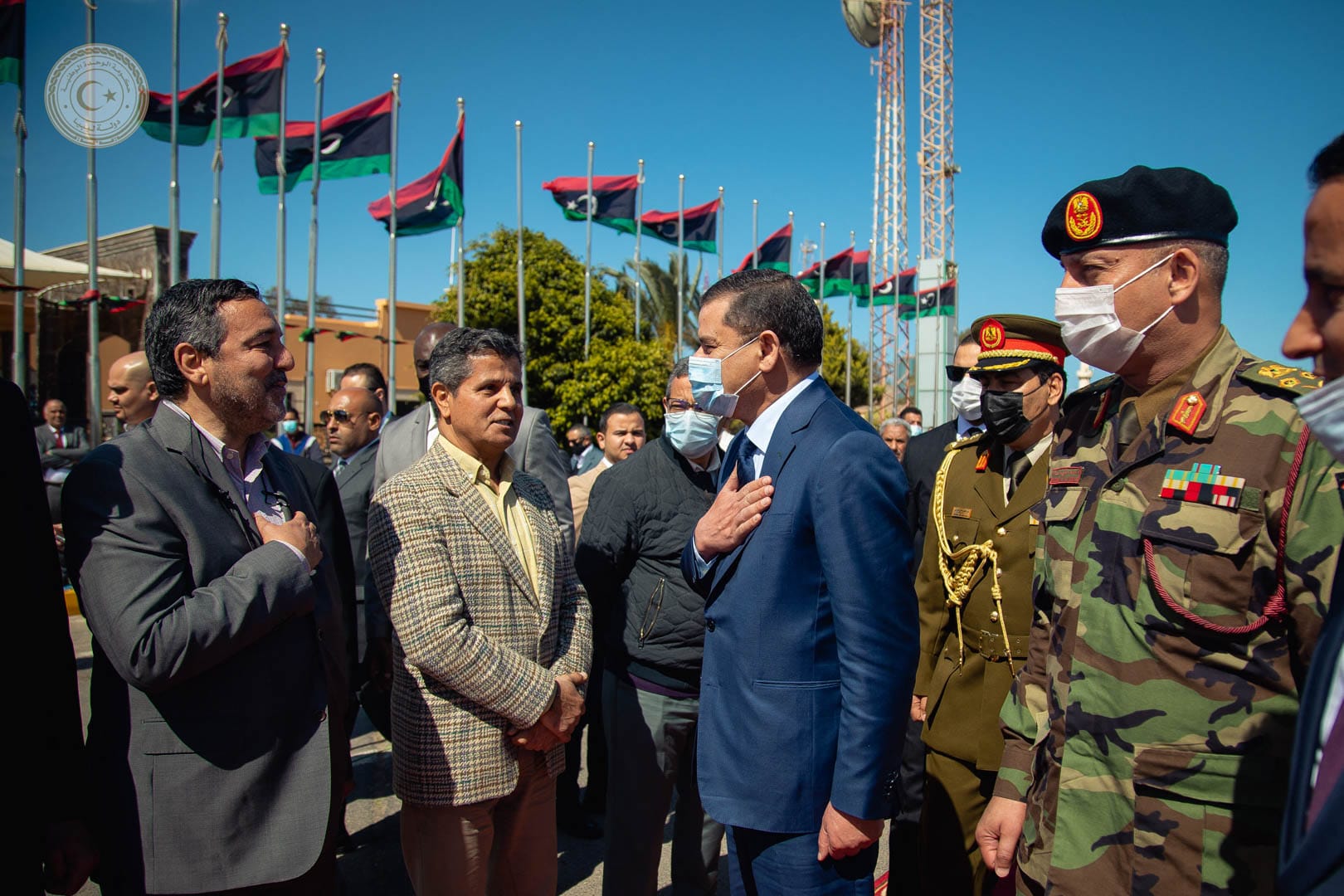
TRIPOLI, LIBYA - MARCH 11: (----EDITORIAL USE ONLY – MANDATORY CREDIT - "LIBYAN GOVERNMENT OF NATIONAL UNITY / HANDOUT" - NO MARKETING NO ADVERTISING CAMPAIGNS - DISTRIBUTED AS A SERVICE TO CLIENTS----) The Prime Minister of Government of National Unity, Abdul Hamid Dbeibeh (R3) is welcomed with an official ceremony upon his arrival to Tripoli, after receiving House of Representatives’ vote of confidence to the new government in a session in Sirte province, on March 11, 2021 in Tripoli, Libya. Government of National Unity / Handout / Anadolu Agency (Photo by Government of National Unity / H / ANADOLU AGENCY / Anadolu Agency via AFP)
Libya’s National Unity Government has initiated talks with the World Health Organization (WHO) to create an integrated platform for managing the country’s pharmaceutical needs, aiming to streamline the supply and distribution of medicines across health facilities.
On Wednesday in Tripoli, Acting Health Minister Mohamed Al-Gouj met with WHO Deputy Representative Hisham Bri and the organization’s pharmaceutical officer to outline a roadmap for establishing a “national systematization of medicine needs.”
The platform is expected to provide precise data on the requirements of hospitals, primary care centers, and specialized health facilities, helping to eliminate chronic imbalances in the supply chain.
According to a statement from the Ministry of Health, the project will include systems for tracking, recording, and rotating medical supplies at three operational levels.
The initiative seeks to prevent situations where some facilities face severe shortages while others hold unused surpluses, a recurring problem in Libya’s healthcare sector.
Minister Al-Gouj emphasized the government’s commitment to reforming and regulating the pharmaceutical industry through strict oversight of imports, storage, and distribution.
“We must ensure that medicines reach patients who really need them, in a transparent and equitable framework,” he said, highlighting the need for efficiency and fairness in delivering essential healthcare.
The project comes amid a backdrop of chronic drug shortages in Libya, fueled by years of conflict, fragmented institutions, and corruption in import channels.
The WHO, providing technical support, aims to assist Libya in establishing a modern pharmaceutical infrastructure that reduces reliance on parallel supply routes and strengthens the resilience of the national health system.
In parallel, Tripoli confirmed ongoing consultations on a draft pharmacy and medicine law designed to modernize the country’s regulatory framework. Once implemented, the legislation is expected to govern the entire pharmaceutical sector, from importation to patient delivery, ensuring greater accountability and sustainability.
This collaboration represents a significant step toward stabilizing Libya’s healthcare system, improving access to essential medicines, and reinforcing the institutional capacity of the country’s public health sector.



